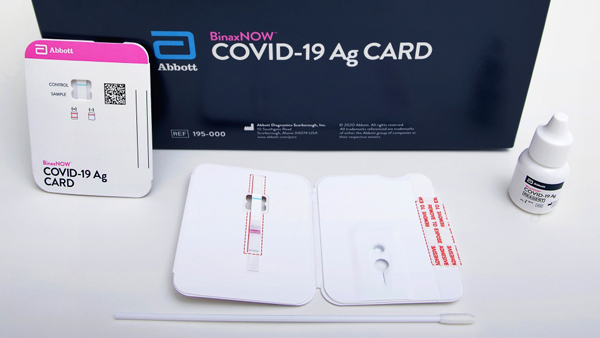Quick tests for coronavirus: what is special and how they work
The COVID-19 Anti-Accessibility Tool (ACT Initiative) is an innovative global project aimed at accelerating the development, production and equitable distribution of tests, drugs and vaccines to combat COVID-19.
This initiative was designed to provide low- and middle-income countries with quality tests, treatment and vaccines. Yes, now we are talking about two rapid tests for antibodies: one developed by the Korean company SD BioSensor and already approved by the WHO, the other - the American company Abbott, which was approved in the United States in September. Plus, the purchase price of such tests will not exceed $ 5.
Abbott has also developed a mobile application that provides access and synchronization with the patient database. Yes, people with a negative result will be able to get a "digital health certificate" through the application, which can then be displayed on the phone screen and presented if necessary.
How the tests work
It is known that these antigenic tests look like pregnancy tests. If a person tests positive for SARS-CoV-2, two blue bars will appear on the test. A huge plus is that these tests work incredibly fast - the whole diagnostic process takes no more than half an hour and allows you to quickly and easily check people. The test can be done at home, no special training and skills are required.
You just need to take a swab from the patient’s nose, put it on the cassette and add the test reagent. In 15-30 minutes you can look at the result: one strip will indicate the absence of coronavirus, and two will show that the person is infected.
In addition, companies claim that the accuracy of their tests is 97%, however, in optimal conditions. In real it is faster from 80% to 90%.

Who will receive the tests
According to the WHO, countries with below-average incomes should receive about 120 million antigenic tests for COVID-19.
The problem is that in such countries the test rates are very low, for example, if in North America 395 patients are tested daily, and in Europe - 243 per 100,000 people, in Africa - less than 16, and mostly in Morocco, Kenya and Senegal. Therefore, UNITAID and the African CPC plan to pool their resources to begin implementing these tests in 20 African countries from October 2020.
And the global fund has pledged $ 50 million in start-up funding to help countries buy new tests.
The WHO says the initiative expects to deliver a total of 500 million tests to low- and middle-income countries over the next 12 months.
What is the peculiarity of rapid testing
“This new COVID-19 antigen test is an important addition to those already available, as the results can be read in minutes, straight from the test cassette. This means that people find out if they have the virus, almost in real time. With a simpler design and more tests in the coming months, this new antigen test is an important milestone in our fight against the pandemic , ”said Jeff Shuren, director of the Center for Medical Devices and Radiology. Devices and Radiological Health) FDA.
Despite this, the FDA explains that antigen tests are not as sensitive as molecular ones. Due to the possibility of reduced sensitivity compared to molecular assays, it may be necessary to confirm the negative results of the antigen test with a molecular test before deciding on treatment.
What are the tests for coronavirus
In general, today in Ukraine and in the world there are three types of tests for coronavirus:
- rapid tests (antigenic tests). These tests are the least accurate, but quickly diagnose the presence of coronavirus, however, if the virus is still detected, you will need to check the result again;
- ELISA tests to determine antibodies to the virus. These tests can determine whether a person is sick, as well as whether he has contracted the coronavirus before or not. In order to perform such a test, the patient’s blood is taken for analysis.
- PCR tests. Such tests can determine whether a person is sick or not. To do this, take a swab from the patient’s nose. In Ukraine, the results of such tests have to wait 7-10 days, ideally this test is done in a few days.
Author Anastasia Ishchenko
Photo: Unsplash, Pixabay
Other news and notes